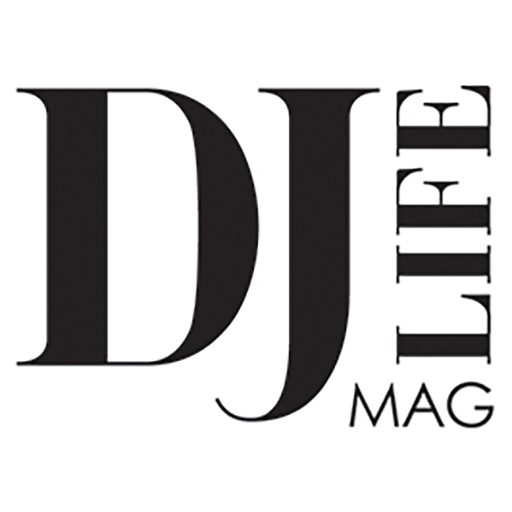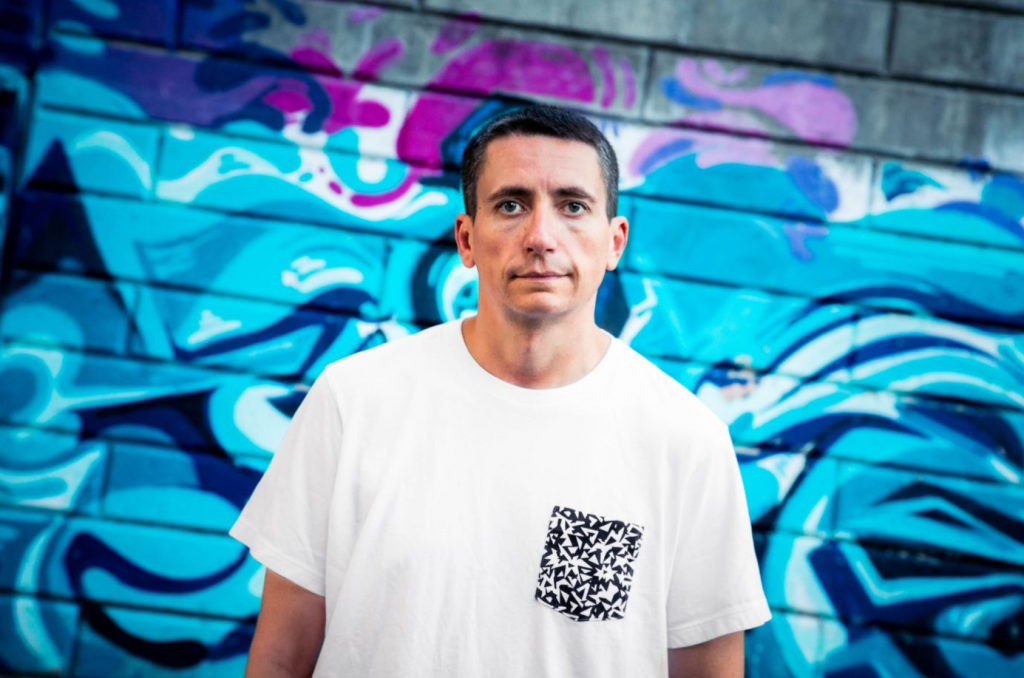As a member of Golf Clap and co-owner of the Country Club Disco label, Detroit’s Bryan Jones spent decades building his profile and becoming a well-known quantity among house-music enthusiasts. But in the midst of the COVID lockdown, Jones decided to split from his former music partner Hugh Cleal and start a new musical chapter for himself.
As Wave Point, he’s pursuing a slightly different approach to house music from his former group and, in many ways, he’s starting again from scratch – music, label, socials, the whole thing. But putting in all that time and effort into his previous outfit has benefitted him, as the transition seems to be going smoothly. After creating a terrific new full-length, Higher Dimension, on his Even Smoother imprint, Jones has gained slots at Midwest festivals like Detroit’s Micro Movement and Chicago’s Spring Awakening: Autumn Equinox, and he’s booking more and more club shows. Easy-peasy, right?
DJ LIFE recently caught up with the talented DJ/producer to find out how it’s done.
DJ LIFE: After leaving Golf Clap and Country Club Disco in June 2020, you started Wave Point. Tell us about that project…
Jones: Wave Point is my new house project that goes anywhere from chill, funky, deep house to big-room tech stompers, and everywhere in between. My album, Higher Dimension, is full of funky, summer, house songs. During quarantine, I was at home every day and listening to more chill house on Spotify, and that’s what I wanted to make in the studio. I’m a product of my environment. Now that I am playing shows again, I’m inspired to make more dancefloor-themed songs that are a bit more for the clubs. The next batch of tunes I put out will have a bit harder edge.
DJ LIFE: What motivated you to start Wave Point?
Jones: After over seven years together as Golf Clap, we started drifting apart a little on what music we were into and what we wanted to do going forward. When COVID hit, all of our shows were cancelled at once. It seemed like the best time to make the move to get my solo project going. Hugh is continuing with the name Golf Clap and the label, Country Club Disco, and I’m exclusively doing Wave Point now.
DJ LIFE: The Wave Point Facebook community is very active, and it seems to be a very community-driven project.
Jones: The Wave Point community is my whole world right now because I haven’t been playing shows until just recently, and all my socials went back to zero again. So, I’ve put a lot of time and effort into building up the community page on Facebook. I do as much as I can to make it about them – so, I actively try and come up with ways to highlight their stuff to help them out in that regard. Each week, there’s a post where members share links to their new releases. I often make a post asking people to comment with a link to a song they are currently working on. People in the group will give feedback, and I make it a point to give detailed feedback on everyone. I’m actively engaged in the discussions and try to make as many personal connections as possible.
DJ LIFE: You have successfully launched several projects over the years. What advice do you have for other DJ/producers?
Jones: It takes a lot of effort and time. Even if you know what you’re doing and have great music, it takes awhile for it to sink in and people to become aware. If you can’t get on the labels you want to get on, do it yourself the best way you can. Things like that will get people more familiar with your name. Play as many shows as you can. You get new fans at the show, and you get people who look you up when the flyer comes out. Also, it gives you more social-media stuff to post like videos from the club, etc. Even if you’re not making a ton of money, try to be playing as often as you can at first.
DJ LIFE: Beyond socials, are there ways to build and foster a connection?
Jones: A lot of it is one-on-one conversations with people over time. If you make it a point to show up to your gigs an hour early and hang out with everyone and meet people, that’s a few more people that will be fans of yours each time. Making people like you as a person is the extra thing that gets them to support you when there are a million artists making similar music as you. At a festival, there’s a lot of great artists playing, but if you have some kind of personal connection with someone, they are more likely to leave the big headliner set and come support you. They are also more likely to tell other people how great you are.
DJ LIFE: What’s your creative process in the studio?
Jones: I do things in cycles. Usually, there’s a certain sound I want to do and I’ll start a bunch of those things in a row for a week. Then I’ll pick three or four that I really like and keep working on those. I do a lot of prep work by making sounds, organizing samples from Splice, going through YouTube videos and cutting up samples. Once I am in the zone on a song, I don’t want to stop what I’m doing and go through tedious sample-finding tasks. The better I prepare, the better chance I have to make it sound right.
DJ LIFE: How do you incorporate effects into your sets so masterfully? Any advice?
Jones: I used to make all my songs on an [Akai] MPC2000 and outboard synths and mixers etc. I would have to plan out what I was doing with my hands so I could unmute two tracks and turn the effects on something else. Also, years ago when we first started Golf Clap, we opened for all our parties at The Grasshopper. We would get there right before doors opened for the night and I would mix just on the monitors and mess with all the effects. I would pick one effect, and say, “OK, in the next 10 minutes I have to find a cool application for this that I can do later when people are here.” Each time you learn another DJ trick, you just have one more thing to pull out at a future gig.
DJ LIFE: Who and what inspires you?
Jones: I’m inspired the most when I’m travelling and playing gigs consistently. I see different places, talk to different people, and listen to different music than I normally would. I pick up something from each place I go, and it also reminds me why I’m doing this. It was hard to have that inspiration during this pandemic while not leaving the house; but I definitely feel much better lately when I can see people and go out again. Some music that inspires me lately? Black Loops, DJOKO, Pat Lok, Marc Brauner, and a lot of music in general on the label Shall Not Fade.
DJ LIFE: How’s your return to festivals/clubs going?
Jones: Amazing, I’ve never been so grateful for DJ gigs – not just because of COVID, but because these are my first gigs as Wave Point. There was this underlying anxiety about me getting booked, but once they started rolling in, I felt much better about it. I closed one of the venues for Micro Movement in Detroit and got to play for a big, packed room for the first time in ages. I played the main stage at Spring Awakening in Chicago recently as well, so that’s the biggest stage I’ve booked for this project.
DJ LIFE: What’s in your studio?
Jones: I’m currently using Ableton Live 11 and various third-party plug-ins to do everything. Ableton’s great and keeps getting better. You can do so much with just that software. I use a UAD Arrow interface – small and portable. For sample packs, some of the best ones I’ve found are Nitelife Audio, which are house/garage/2-step packs made by producer Scott Diaz who also makes really good tunes. I also really love the packs by Noizu, Taiki Nulight, Jafunk and Pat Lok. Then, I use some of the classic ones that are always quality are KSHMR, Oliver, and Toolroom packs.
DJ LIFE: What’s your DJ set-up?
Jones: I use Pioneer DJ equipment. The new CDJ-3000 decks are really great, and I’ve been working with the new features on them. It feels similar to looking up songs on your computer instead and it has touch screen. There are a lot of cool little features in there that the older models don’t allow you to do. Pioneer’s DJM-V10 is my mixer of choice when it’s available. The Pioneer stuff really is top-notch and even their all-in-one DJ set-ups are great for after parties or recording a mix for someone, etc.
DJ LIFE: Any aspirations for the house-music scene?
Jones: I would like to see more subgenre crossover. I like when different kinds of house producers make songs together and bridge over the sound and fanbase. I play and make all kinds of house music and love when I see everyone coming together.
To check out more interviews, click here.


